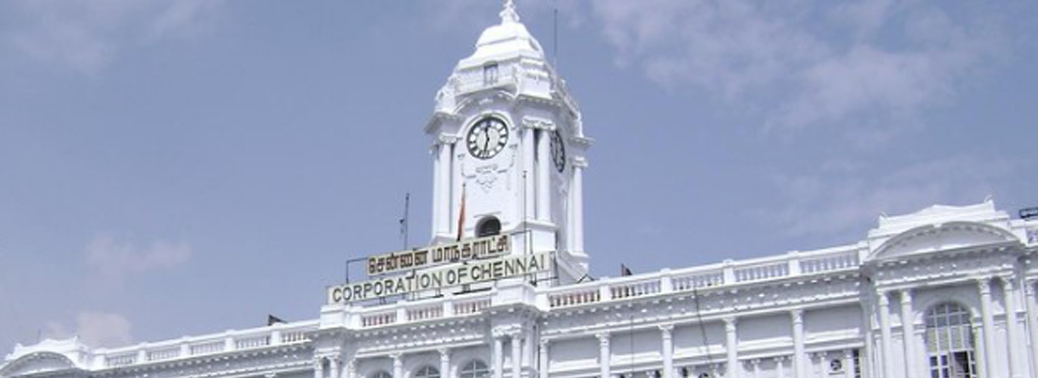IT’S TIME TO EMPOWER MAYORS
20, Feb 2020

- This article highlights that why the election for the post of Mayor in Urban Local Bodies must be held directly and should not involve the role of political parties in the Election process.
Present Problems in Urban Local Bodies:
- As Indian cities grow in number and size, the pressure for better urban governance has increased and urban governance in its current form is fraught with inefficiency, mismanagement and overlapping jurisdiction of executive and political authorities.
- Recent research on urban governance highlights that powers of Mayors in Municipal Corporation is somewhat restricted and is shared with Municipal Commissioner who is an executive authority. At present, mayors are elected by city councillors who themselves are directly elected by urban voters.
- Despite being considered the political and executive head of the municipal body, mayors assume largely titular position, while the government-appointed municipal commissioner holding executive power. This leaves the mayor with little authority to influence urban development, planning and operation.
- Metros have been deprived of empowered Mayors who can raise efficiency, productivity and liveability conditions of city.
Intra- State Variations:
- States of Madhya Pradesh, Chhattisgarh, Rajasthan and Tamil Nadu decided to have indirect elections for Mayor and have used the excuse of poor performance of urban local bodies as a justification to replace direct election of Mayors with an indirect system.
- There are some states like Uttrakhand and Jharkhand where Mayors are elected by direct elections but in none of the mega cities of India, mayors are directly elected.
Key Flaws Highlighted by Economic Survey:
- The Economic Survey of 2017-18 notes that a third of the population now lives in urban areas which produce three-fifths of the GDP.
- India’s overflowing cities lack capacity, infrastructure and leadership for urban governance.
- The Survey attributes it to the absence of a single city government in charge, and low spending on infrastructure. State governments receive huge revenue from urban cities but do not support the idea of strong Mayors. Chief Ministers see a potential threat from a charismatic and empowered Mayor with progressive policies.
Need for a directly elected Mayors for Urban Local Bodies (ULBs):
1. Introducing direct election for mayors could improve political accountability which will help in increasing efficiency in urban governance.
2. A direct mandate from urban residents adds to the legitimacy and accountability of the mayor’s office. It would also resolve the power tussles between mayors and Municipal Commissioners.
3. Fixed tenures for mayors offer greater continuity as opposed to state-appointed bureaucrats who can be abruptly transferred.
4. In the current model, councillor elections are held at the ward level and are based on hyper-local issues, which may not resonate with the whole city. A directly elected mayor would ensure a focus on the problems of the entire city instead of certain specific wards.
5. Directly elected Mayors with adequate power and authority can help solving problems faced by large cities including problems associated with achieving goals of Sustainable Development Goals, the Paris Agreement on Climate Change and the UN Habitat New Urban Agenda.
Need for Election for Mayors to be conducted on Non-Party Lines:
- The main task of the bodies is to handle problems concerning sanitation, water supply and solid waste management and in such places political ideologies hardly matter.
- Even in the area of water supply and sewerage, the role of the municipal corporations of Chennai, Bengaluru and Hyderabad has got reduced as there are entities exclusively for this purpose. Delhi too has a Jal Board, headed by the Chief Minister.
- Under the present scheme, Chief Ministers do not want strong ULB chiefs to emerge, especially if the person happens to be from his or her party. This explains why parties prefer indirect elections.
- So, if the polls are held on non-party lines with direct elections for chiefs of ULBs, a new crop of leaders will emerge outside the political class. Well-educated and well-qualified youngsters will be encouraged to take part in the election process.
- More importantly, municipal elections will become cheaper as there will be no need for competitive spending by nominees of rival parties.
- Further, if Mayors do not perform, then political representative of the area including MLA and MP will not be held responsible for their wrong doings.
- Thus, ULBs can have meaningful empowerment only if the concept of non-party elections is adopted. This is a prerequisite for the implementation of the ‘strong mayor’ model.






